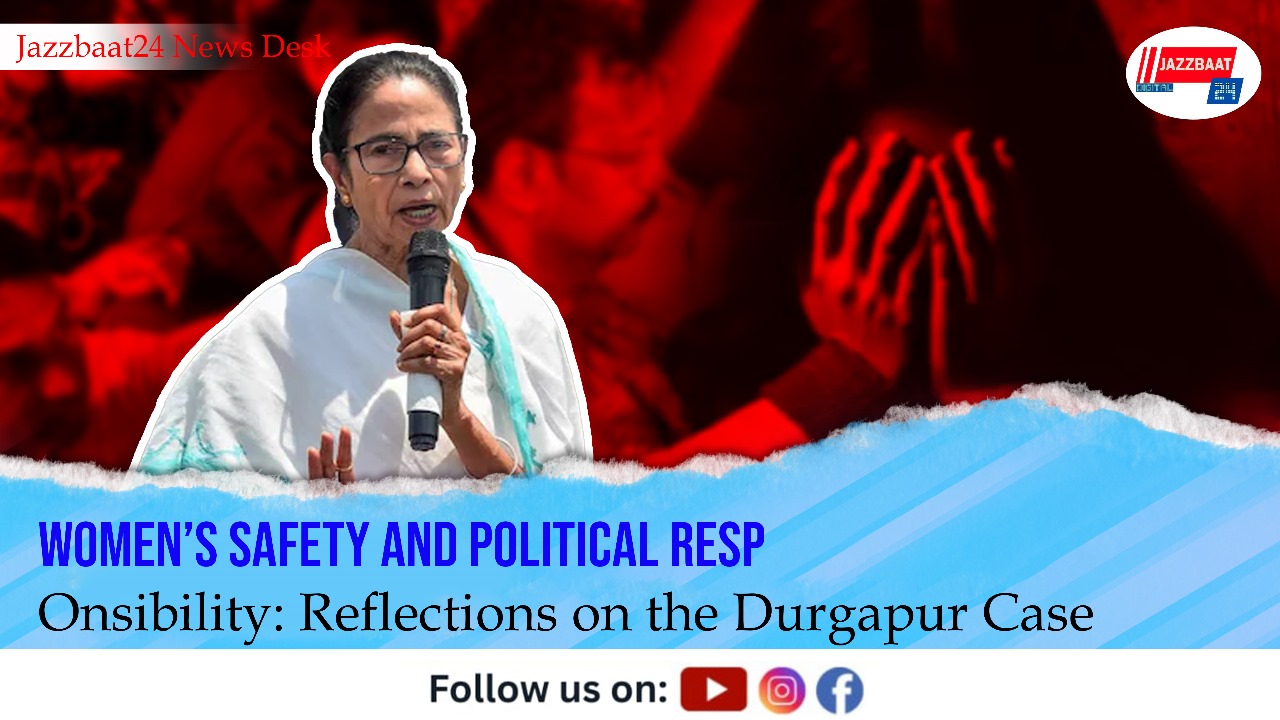The recent incident in Durgapur, where a second-year MBBS student was allegedly sexually assaulted, has brought attention to the interplay between political commentary, law enforcement accountability, and societal fear, highlighting the vulnerability of women's safety in public places. In addition to the immediate horror of the crime, the case has spurred discussion about the duties of political leaders, the concerns of the relatives of the victims, and the structural flaws that permit such incidents to happen.
At first, the survivor's father expressed his profound concern about the state's law and order situation, calling West Bengal "under Aurangzeb's rule" and saying he wanted to return his daughter to Odisha for her protection. Chief Minister Mamata Banerjee's statement that "women should not venture out at night" prompted his criticism. Although this kind of advice may be presented as preventative, it runs the risk of placing the responsibility for women's safety on them rather than the government. A vital point is brought to light by the father's anxiety and his demand for immediate action: safety is not just a question of individual watchfulness; the state and law enforcement organizations must establish an atmosphere in which women can live, learn, and work.
In a dramatic change of heart, the father later apologized in public to the Chief Minister, calling her a "mother-like figure," and he asked for justice for his daughter. This reversal exemplifies the emotional turmoil that victims' families go through as they attempt to reconcile political discourse with personal trauma. It is crucial to remember the fundamental concerns of justice, accountability, and protection, even though some media narratives concentrated on the significant shift in his position. Families should never feel pressured to move or take drastic steps to stay safe in their own state.
After four days of interrogation, Wasif Ali, the survivor's classmate and alleged prime suspect, was arrested, demonstrating the West Bengal Police's prompt response in some ways. Police Commissioner Sunil Kumar Chowdhury explained that the assault was carried out by a single person and that all six of the accused, a former security guard, a hospital employee, a member of the local civic organization, and an unemployed man were present. Although these arrests are essential first steps, they also highlight the necessity of systematic preventive measures, such as increased patrolling, improved public space monitoring, and community awareness campaigns.
The survivor gives a terrifying account of the attack. She was cornered, chased, and threatened with more violence if she and her friend screamed. These stories serve as a reminder that the fear of assault is a psychological trauma just as much as a physical one, and that it is the duty of society to stop such threats from occurring.
When it comes to shaping public discourse, political leadership bears a unique responsibility. Unsafe environments may unintentionally be legitimized by statements that place the onus of safety on women. On the other hand, a definite dedication to prompt justice, zero tolerance for criminal activity, and proactive steps to stop assaults can reassure people and boost public confidence. Although Chief Minister Banerjee's subsequent clarification, which emphasized that "no one will be excused" and declared a zero-tolerance stance, is a positive step, consistent action must follow words.
The Durgapur case highlights a larger national issue: families still live in fear and women's safety is not equally protected despite laws and awareness campaigns. Arrests alone cannot provide survivors with justice; ongoing political commitment, efficient policing, social awareness, and cultural transformation are all necessary. India has to face hard realities about accountability, power, and gender. Only then will tragedies like the assault in Durgapur cease to be commonplace and instead become uncommon.


fullimage.jpg)



